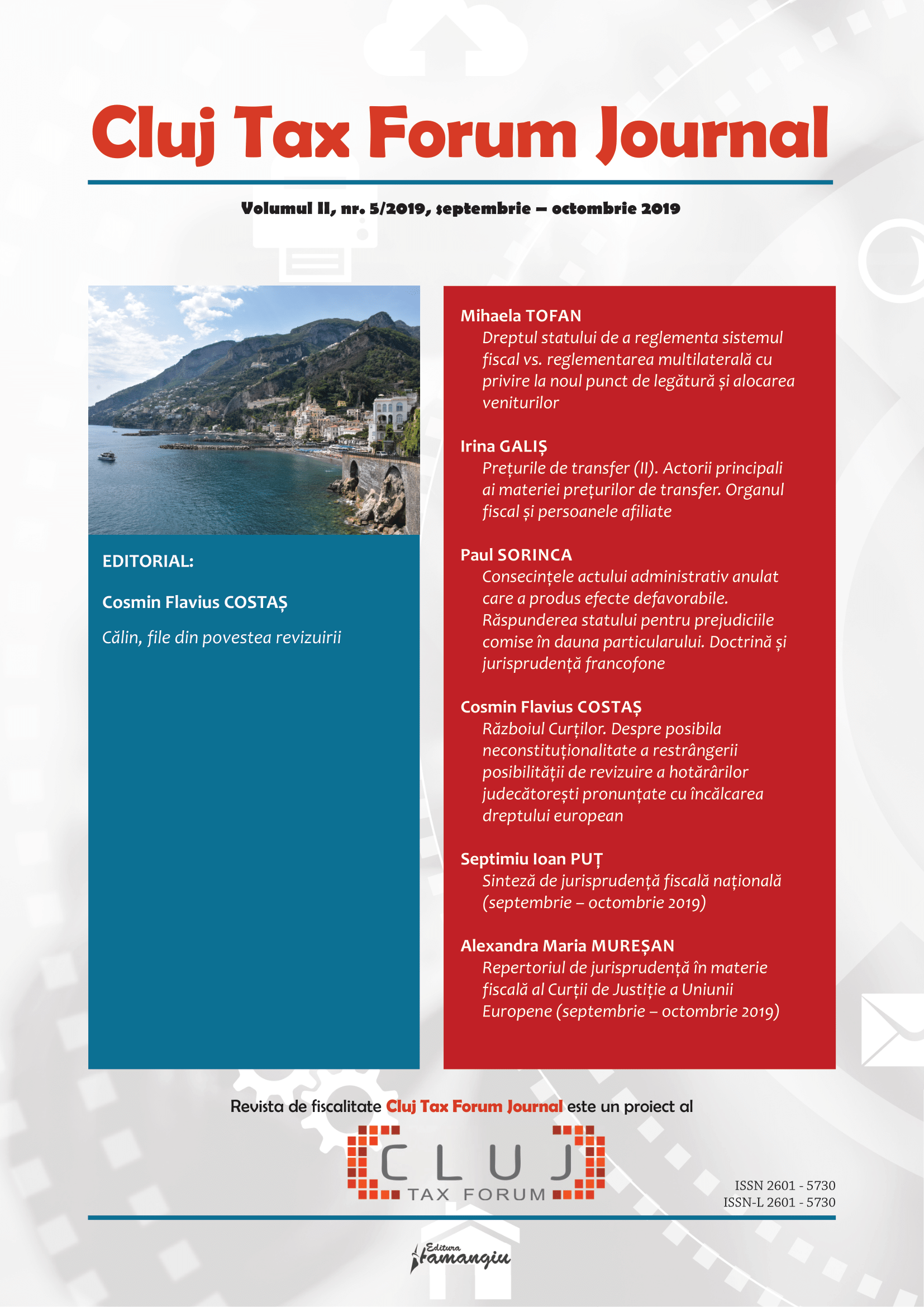Dreptul statului de a reglementa sistemul fiscal vs. reglementarea multilaterală cu privire la noul punct de legătură și alocarea veniturilor
State Right to Rule Tax System vs. Multilateral Regulation on New Nexus and Income Allocation
Author(s): Mihaela TofanSubject(s): Law, Constitution, Jurisprudence, International Law, Law on Economics, EU-Legislation, Commercial Law
Published by: Editura Hamangiu S.R.L.
Keywords: OECD; tax avoidance; international multilateral regulation; new nexus and allocation; digital economy; physical presence;
Summary/Abstract: The current economic context, strongly affected by digitalization, multinational enterprises (MNEs) aggressive tax planning and unilateral regulatory initiatives developed by the states, welcomes the multilateral action to reinforce the fight against tax avoidance. While EU members are long and intensively debating on the proposal for common corporate consolidated tax base [CC(C)TB Directive], the Organization for Economic Cooperation and Development (OECD) has elaborated an “Unified Approach”, which seems to have a more precise timeline. It clearly shows that the nexus based on the physical presence is not sufficient in the current global economy and that there is not a mandatory need to differentiate an economic area (e.g. the digital economy) from the other industry when trying to legitimate the fiscal treatment. The OECD proposal intends to design a regime based on new allocation rules for corporate income that would permit the appropriate level of taxation for business activities in market jurisdictions. It is not a completely new approach on the topic, keeping the current rules based on the arm’s length principle, at least for the cases where they are working as intended. In order to make the taxation regulatory framework as simple as possible, it is salutary that the new nexus would include some previsions for physical presence and some previsions responding to the situations when such presence may not be identified. The novelty of the proposal is the formula-based approaches in new defined nexus situations, in response to the increasing tensions between different tax jurisdictions. Still, there are some limits of the proposal, which the paper brings out and proposes some ways to properly address them.
Journal: Cluj Tax Forum
- Issue Year: II/2019
- Issue No: 5
- Page Range: 7-14
- Page Count: 8
- Language: Romanian
- Content File-PDF

